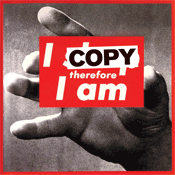Open source is a term we most often hear applied to software and intellectual property in the digital realm. The Danish artists SUPERFLEX (Rasmus Nielsen, Jakob Fenger and Bjørnstjerne Christiansen) take open source philosophies and tactics offline and apply them to real world situations. Their work challenges corporate market practice through large-scale DIY projects such as television stations and fuel production plans. One of the most compelling examples of their use of homebrew 'programming' is the project GUARANA POWER. Guarana is a caffeine rich berry farmed in South America, often a major ingredient in soft drinks. A large food and beverage conglomerate sought to monopolize the market in Brazil, and with the help of SUPERFLEX and the Power Foundation, one farmer's co-op stood in direct opposition by bottling their own locally grown and produced soft drink under the label GUARANA POWER. By making their recipe and process freely available, these farmers usurped the proprietary practices of a major corporation. Like their open source applications, another digital convention that SUPERFLEX employs for non-digital purposes is the practice of versioning. The FREE BEER project is an open source recipe for beer (which includes guarana), that can be and has been adapted and improved upon. FREE BEER 3.3 is available as part of their latest exhibition COPYSHOP, recently opened at the Knoxville Gallery of Art. Part exhibition, part workshop, and part, for lack of a better word, copy shop, COPYSHOP acknowledges the importance of open culture, and has made available FREE BEER, Star and Buck Coffee, Black Spot sneakers and other homebrewed alternatives to corporate products. Mindful of the increasingly globalized power structures they live in, SUPERFLEX are not anti-capitalist, but use tools of capitalism to actualize new and progressive ways of thinking about consumer culture. - Caitlin Jones
